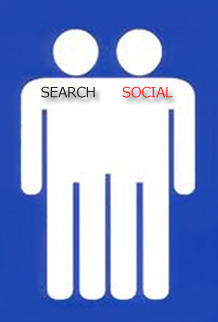The first thing that hit me was the smell. I’ll never forget it. It was a mixture of salt water, diesel fuel and damp clothes that never quite dried. I was on the Mississippi gulf coast a week after Hurricane Katrina hit and that first moment of stepping out of the car is one which is forever seared in my memories.
Yesterday was the 5 year anniversary of Hurricane Katrina. I grew up in New Orleans and though my family had all but moved away by the time it had hit-watching the aftermath unfold on TV, was as painful as anything I have ever been through.
Some thoughts came flooding back to me of my time on the gulf coast.
I remember just how quiet it was. Just completely devoid of life. Not even birds or bugs wanted to be where I was. I was in Pass Christian, Mississippi-a little over an hour outside of New Orleans. If there was a ground zero for where the Hurricane came across, this was it. Nothing was where it used to be and what was left, I barely recognized.
This morning though, five years later, I was wondering if social media could have “helped”. The year was 2005 and we were just on the cusp of social platforms roaring into our lives. If we would have been able to use Twitter and Facebook specifically, would that have helped pre-and post-emergency services?
I remember the day after Katrina like it was yesterday. I was trying to call all of my friends and family that lived along the gulf coast. From Mobile, Alabama to Pass Christian, Mississippi to Mid-city, New Orleans, getting any information was maddening. I had no way to know what was going on. None of us did. We were relying on television and whatever info we could scrape off the net. I just had the sickest feeling though, I knew what had hurricanes had done to that region in the past.
Would have social media made a difference?
We brought 600 pounds of supplies and it was gone in less than 2 days. I stayed 1 week. I ate my meals at Army National Guard outposts. We slept at a friends house that wasn’t too damaged. Meaning not that many tarps. Not much was really spoken amongst us, most were still too stunned. But everyone had a story, either personal or of someone they knew, about survival, of “getting out”.
Cell phones were useless and with zero communication with the outside world, we were pretty much on our own. Watching nightly news reports were virtually impossible, and what we did see, did not really tell the “whole story”. Not a whole lot of coordination happening. I wasn’t thinking it then but I wonder if social could have helped?
After 3 days of trying to dig for and salvage anything for my friends, the soles of my boots rotted off from the toxic sludge we were walking through. I then stepped on a nail and had to get a tetanus. I was more mentally spent than physically spent. The heat was oppressive and the smell at times overwhelming but I wanted to keep going.. I had done everything I could and I remember thinking, it’s not even close to being close to anything of impact…
Below is a deck I did of the pics I took and the thoughts associated with them.









